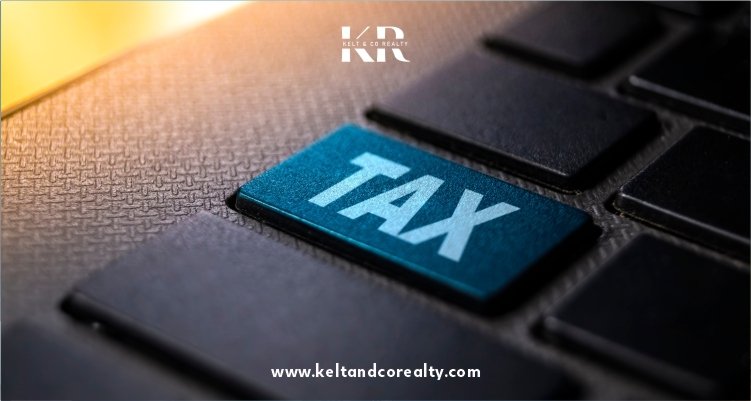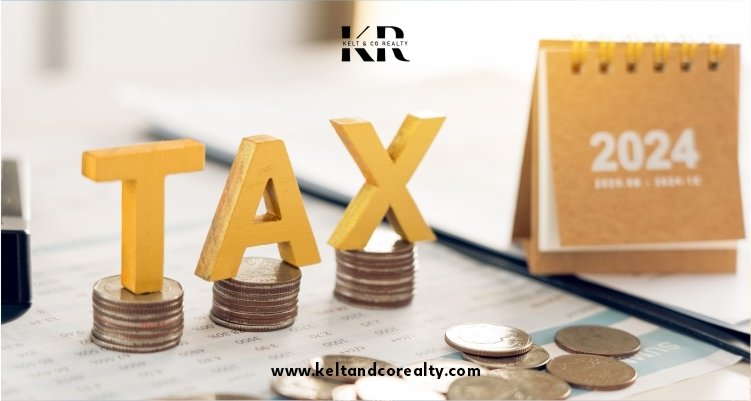Property Tax In UAE: What Homeowners Need To Know
When it comes to the UAE’s property sector, it is considered a haven for real estate investment. The iconic skyline, modern infrastructure, diverse investment options and exemptions of several taxes make it a desired real estate investment destination. Locals and foreign nationals can invest and own properties for sale in Dubai.
Is there property tax in Dubai? Many people ask this question when considering investing their savings in the UAE. Normally, investors and homeowners enjoy several tax-related relaxations. Tax evasions also attract real estate investors. However, homeowners are required to pay some taxes, fees, or charges. Property tax in Dubai. In simple terms, they pay the lower taxes on their properties.
Property Tax In The UAE
When you purchase real estate in Dubai, UAE, you are not bound to pay traditional taxes. The local government facilitates real estate investors. It has eliminated a number of taxes to increase the profit margin of a seller and lower the cost of a property buyer. Given this, it offers significant advantages to investors and homeowners.
There is no annual property tax in Dubai. It means a property owner is not liable to pay tax to hold a property. There is no burden for holding property in Dubai, UAE. Furthermore, there is no capital gain tax. It means the owner of a property enjoys the complete benefit of appreciation. He is not bound to pay a portion of his profit to the government.
Unlike other property hubs, property owners can transfer their properties without paying any balance or tax to their heirs. Property can be seamlessly transferred in Dubai, UAE without any tax-related implications. Along with that, your wealth is truly yours because the government does not tax your wealth or property.

Homeowners Need To Pay The Following Taxes or Fees
Property Transfer Fee
In Dubai, 4% of the total value of a property or purchasing price is charged upon the transfer of a property from one owner to another. However, in Abu Dhabi, 2% of the purchase price is paid as a transfer fee. The Dubai Land Department (DLD) collects property transfer fees in Dubai, UAE.
Registration Fees
New owners or buyers are also supposed to pay a one-time registration fee to the DLD. This particular fee is paid when a property transaction is formally registered. AED 2000 is paid for properties valued up to AED 500000 and AED 4000 is paid for properties valued above AED 500000.
Value Added Tax (VAT)
VAT applies to commercial properties. Residential properties’ sales are normally exempted from this specific fee.
Mortgage Fees
People who consider mortgages are required to pay a mortgage registration fee which is around 0.25% of the total amount in Dubai. Along with that, processing charges and valuation costs are also paid.
Agency Charges
If you acquire professional services then you also need to pay agency charges. Normally, it is around 2% of the total value of a transaction.
Utility Charges
Homeowners are also liable to pay utility charges. Users pay utility charges such as water and electricity bills to the Dubai Electricity and Water Authority (DEWA).
Municipality Taxes
If you are seeking a rented property, you also need to consider annual municipality tax. In certain emirates, annual municipal taxes are liable on residential leases. Tenants pay these charges along with their utility bills. Consider the municipality fee in Abu Dhabi when seeking a rented property.
Furthermore, the No Objection Certificate fee and Administrative charges are also applicable in Dubai, UAE. The administrative fee is AED 260 and the NOC fee is around AED 4000.

UAE Property Tax System: One Of The Most Effective Systems Globally
- The dynamics of the property sector in Dubai in particular and the UAE in general have altered a lot. Its efficient tax system streamlines property transactions and facilitates real estate investment, attracting clients from all over the world.
- There is no taxation on properties in Dubai. This no-tax phenomenon makes Dubai, UAE one of the most lucrative investment destinations. There is no direct taxation on income which encourages investors and homeowners
- Given the taxes or property-related fees, Dubai is the second lowest in the world. It means it is one of the most considerable and cheapest places to invest and own luxury real estate
- There are no capital gains or income taxes in Dubai, making it an appealing destination for real estate investment.
Benefits Of Investing In The UAE’s Real Estate Sector, Considering Tax Advantages
- If you take advantage of capital appreciation and sell your property in Dubai, UAE, you are not bound to share your profit with the government. Profit is yours because there is no capital gain tax in Dubai. It means real estate investment in Dubai offers high returns on investment.
- First of all, tax evasions facilitate property investment, and also tax structure is quite simple. Given this, local and foreign national investors are attracted to this property market, find their desired places and earn significant returns.
- There are no property ownership charges and income taxes which reduce the cost of owning a property in the emirate. Lower cost of ownership also makes the property sector investment more lucrative and beneficial.
- VAT does not apply to residential properties for sale in Dubai. The exemption of VAT reduces the buying and selling cost of properties in Dubai, UAE.
The Bottom Line:
When you aim to invest in Dubai, UAE, you should consider the UAE’s property tax system. The understanding of property tax in Dubai helps investors choose the most feasible and viable investment destination. Dubai, UAE is considered the second lowest in the world in the domain of property-related taxes. Investors and homeowners do not pay income tax or capital gain taxes. However, they must pay transfer fees, registration fees, mortgage charges, NOC fees, agency fees, municipality taxes and utility bills.
Get Experts’ Advice Before Making A Final Decision!
Kelt and Co Realty is a prominent Dubai-based real estate agency. Its professional team is enthusiastic and dedicated to meeting your investment objectives. No matter whether you aim to invest in commercial or residential properties for sale in Dubai, UAE, our experts can guide you and find the most reasonable investment opportunity based on your preferences.
FAQS:
Is there property tax in Dubai?
Investors do not pay traditional taxes in Dubai such as income tax and capital gain tax. Furthermore, there is no property ownership tax in the metropolitan city. However, homeowners and buyers pay certain fees and charges to buy property in Dubai.
Do you pay house tax in Dubai?
No. There is no property, income, or inheritance tax in Dubai. One does not need to pay taxes just to own real estate in Dubai, UAE.
How much is the transfer fee in the UAE?
The transfer fee is paid upon the transfer of the ownership of the property. When the ownership is transferred, this fee is paid. It is around 4% in Dubai and 2% in Abu Dhabi.
What is the Dubai property tax calculator?
The Dubai Tax Calculator is an online tool or platform that is used to find out fees associated with property transactions in Dubai. Buyers, sellers and investors use it to measure associated charges.


